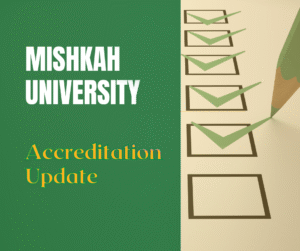Dr Ahmad Kobeisy: Knowledge of Islam and Life.
“Knowledge” refers to the familiarity with, awareness of, or acquaintance with facts, principle and information. In Arabic it is علم (‘Ilm), the same root for banner, flag, famous, among other meanings. In the practical sense, knowledge means understanding the true nature, characteristics, causes, and consequences of things.
The following are only a few of several facts from both the Qur’an and the Sunnah that demonstrate the superiority of knowledge:
- Knowledge is given precedence to iman, which is evident in Allah’s statement (فَاعْلَمْ أَنَّهُ لَا إِلَهَ إِلَّا اللَّهُ) i.e. “So, Know (i.e. O’ Muhammad) that there is no god worthy of worship but Allah” (Qur’an 47:19). Based on this verse, Imam Al-Bukhari, may Allah have mercy on him, designated a chapter titled: The chapter of knowledge before saying and acting (i.e. before expressing iman verbally or practically).
- Allah did not encourage His prophet Muhammad, peace be upon him, to appeal for increase in anything except knowledge (وَقُل رَّبِّ زِدْنِي عِلْمًا) which means “and say: O’ my Lord, increase me in knowledge.” (Qur’an 20:114)
- The Qur’an gives preference to the people of knowledge over those who have no knowledge. It states:
(قُلْ هَلْ يَسْتَوِي الَّذِينَ يَعْلَمُونَ وَالَّذِينَ لَا يَعْلَمُونَ) which means: “Can they be deemed equal: those who know and those who know not?” (Qur’an: 39:9). - Allah honored the people of knowledge by including them in the company of the noble angels to bear witness, along with Him, of the most noble and true testimony which is His oneness.
The Quran states: (شَهِدَ اللّهُ أَنَّهُ لاَ إِلَـهَ إِلاَّ هُوَ وَالْمَلاَئِكَةُ وَأُوْلُواْ الْعِلْمِ قَآئِمَاً بِالْقِسْطِ لاَ إِلَـهَ إِلاَّ هُوَ الْعَزِيزُ الْحَكِيمُ): “Allah testifies, and so do His angels and the people of knowledge, that there is no deity worthy of worship but He, the Upholder of Justice, there is no deity worthy of worship but He, the Exalted, the All Wise.” (Qur’an 3: 18) - The superiority of the person of knowledge over the worshipper without knowledge is like that of the Prophet (saw), over the least of his ummah” (Tirmidhi), and “like the superiority of the Moon over all other stars.” (Abu Daud).
Because our religion is based on evidence, facts and truth, the Qur’an repeatedly encourages people of intellect, mind and understanding to reflect and to contemplate on the signs of the universe as well the Qur’an’ s contents in order to benefit from Allah’s signs and phenomena. At the same time, Islam challenges opponents to “bring their proofs if they are truthful”, “to avoid suspicion” and “to stop following assumptions”.
Another benefit of knowledge is that people are usually tempted away from Islam through either the doubts (i.e. confusions) or vain desires. To protect against vain desire, we need to have a strong will, but to protect against doubts and confusions, we need KNOWLEDGE.
The statement “knowledge is power” has been echoed by Islam since its inception with the first Qur’anic revelation (إقرأ) “Read”, where Muslim scholars paved the way for the rest of the world in various aspects of life. In Islam, both Islamic and worldly knowledge go hand in hand and cannot be separated.
The Islamic knowledge, however, constitutes the foundation and the base for understanding other fields, links all that is created to its Creator, defines the purpose of creation, and sets the rules and manners for the relationship between all that is created on the one hand, and their relationship with Allah on the other. Those who possess worldly knowledge while lacking knowledge of the deen and the reality of life are described in the Qura’n as knowing the surface layer of this life while they are totally unaware of the fact of life. The Qur’an states: (يَعْلَمُونَ ظَاهِرًا مِّنَ الْحَيَاةِ الدُّنْيَا وَهُمْ عَنِ الْآخِرَةِ هُمْ غَافِلُونَ) (Qur’an: 30:7).
 |
While mastering religious knowledge, Muslim scholars also excelled in geometry, medicine, chemistry, engineering, math, astronomy and physics among other scientific fields which helped lead the enlightenment of the world.
Since Islam is a religion that includes all aspects of life, knowledge is a very comprehensive term. Some Muslim scholars classified some forms of knowledge as mandatory (wajib or fard), while considering others as forbidden (haram).
The Mandatory knowledge can be classified into:
1. Individual Obligation (Fard ‘Ayn)فرض عين .
2. Communal Obligation (Fard Kifayah) فرض كفاية.
Under the first category of religious knowledge falls everything that a Muslim needs to know in order to live in adherence to the rules and principles of Islam. Proper ‘aqidah, how to perform ‘ibadat correctly, and how to trade, work, marry and live with neighbors according to Islam, are only a few examples. Some forms of worldly knowledge could also fall under this category such as learning a profession or a career in order to make a living and to take care of self and family.
 |
The communal obligation can also consist of both religious and worldly knowledge. Religious knowledge includes the scholarly Islamic knowledge which is needed to satisfy the needs of the Muslim community when they need it (e.g. inheritance, penal law, requirements at times of death, last will, etc.). Unless the Muslim community designates from among its members a sufficient number to learn adequately to cover their needs, all the community members will be in sin. On the other hand, the worldly knowledge in this category includes the professions and work that the Muslim community needs such as medicine, engineering, farming, economics and finances, etc.
The forbidden knowledge is such knowledge that may lead people away from Islam or hinder their learning process. An example of the first would be the learning of practices that are forbidden Islamically such as magic, sorcery, manufacturing unlawful materials for consumption or use, or learning the skills of a profession that is unlawful such as marketing usury and forbidden items. Permissible fields of knowledge can become forbidden if used for destruction or the promotion of forbidden behaviors and acts.
In conclusion, knowledge is essential in Islam and seeking knowledge of both religious and worldly nature can be a form of ‘ibadah if the intention is sincere for Allah and the pursuit of knowledge is for a legitimate purpose. Religious knowledge must be used as the framework to which all other fields of knowledge must be referred. Worldly knowledge can be used to facilitate our life within the boundaries of Islam. Under no circumstances should Muslims allow ignorance to exist among them. Knowledge manifests in a higher level of adherence to Islam and a higher level of humanity.
May Allah increase us all in knowledge.
Dr Ahmad Kobeisy teaches Aqeedah and History of the Islamic State at Mishkah University.





